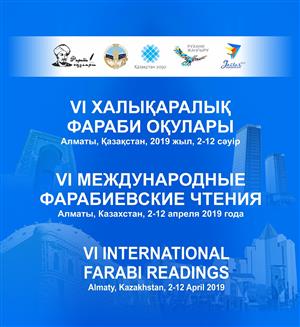- Main page
- News
On the work of the section "Classification of Al-Farabi Sciences and Actual Problems of Modern Natural Science"
4/3/2019
Within the VI International Farabian Readings, the Farabi International Forum “Al-Farabi and Modernity” was held in the library of al-Farabi KazNU on April 2-3, 2019. Among the six sections that worked, there was the section "Classification of the sciences of al-Farabi and current problems of modern natural science". The section was moderated by the Dean of the Faculty of Information Technologies U. Tukeev, as well as the Head of the Department of General and Inorganic Chemistry R. Nadirov.
The topics of the reports of the section concerned mainly the scientific problems of information systems. The problems concerning the algorithms of machine translation, in particular, the translation into the Kazakh language, were touched upon. The advantages of machine translation are the ability to process large amounts of data in a short time. The statistical method, on the basis of which the service from Google is built, involves the analysis of a huge array of parallel texts. Due to the relatively small number of such texts in the Kazakh language, the implementation of high-quality machine translation into Kazakh (or from Kazakh) is now problematic. The speakers suggested original solutions to this problem.
Professor К. Kubaev reported on the results of his work on modelling the sustainability of an innovative economy that provides economic growth. As the speaker noted, the proposed model is universal; that is, it works for the economic system of almost any country.
Foreign speaker, professor of the Institute of Geology and Mineralogy of the Siberian Branch of the Russian Academy of Sciences (Novosibirsk) F. Urakaev made a presentation “Synthesis, properties and application of silver, sulfur halide nanoparticles and nanocomposites based on them”. The report covered the results of international cooperation between the Faculty of Chemistry and Chemical Technology of al-Farabi Kazakh National University, Institute of Geology and Mineralogy (Novosibirsk, Russia) and Bashkir State University (Ufa, Russia) in the field of production and use of sulfur nanoparticles and silver compounds, as well as nanocomposites based on them.
Section work was multidisciplinary. All reports aroused the lively interest of those present.

